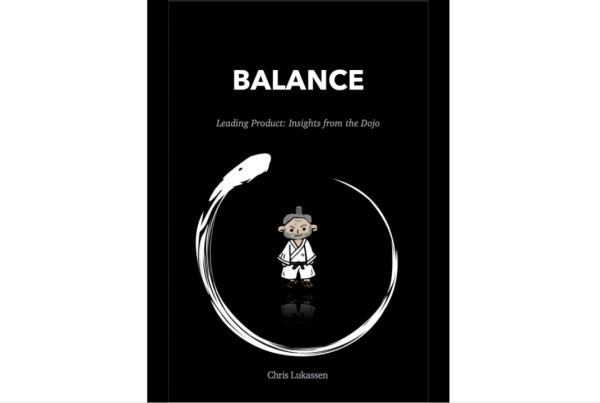Here’s an interesting question for you: Should you run your team at work as a high-performance athletic program, or as a community sport club?
Stop. Don’t answer just yet.
I know, I know: You’re a high-performance type of person. You shoot for the stars. Of course, you run things as a high-performance program. But let’s still take a few minutes to look at the question together.
Most people have had the experience, at some point in their lives, of being part of some type or another of structured sports program. Perhaps your parents enrolled you in a football club as a child, or perhaps you did gymnastics or track and field as a teenager. Whatever your sport, even if you went on to compete nationally or internationally, you probably got started in a community club before being tapped on the shoulder for something bigger. But even if you’ve never really taken part in organized sports, you probably have some ideas on the question so you’re welcome to come along.
Fifteen years or so ago, I invited a colleague from work to join me at the dojo for a judo workout. She arrived at the club, exchanged a few words with my sensei, got changed and joined us on the mats for the class.
There would have been forty people or so on the mats that evening, with experience ranging from a few months to many decades. As someone taking her first ever judo class, she was taken charge of by more experienced judokas – blue, brown and black belts who took turns throughout the class making sure that she was well taken care of and being taught the basics. All around her, the class went on.
My colleague, at that time, was a top-level competitive cyclist. She was in fantastic shape – in better shape in fact than all except the most competitive athletes at our club. When we got together at work the next day to discuss her experience, I asked her how she had found it.
It turned out that she had really hated the experience. As a cyclist, she found the intense physical contact of judo quite off-putting (this is not unusual – my own wife had a similar experience fifteen years earlier). But that was not her key takeway. “What I don’t understand”, she said to me “is why all those people would interrupt their own training to take care of a beginner like me.”
I remember being completely bemused by her comment. It was so unexpected and threw me off so thoroughly that it took me a few seconds to recover my balance.
“Well”, I said to her, “that’s just the ways things work in a dojo: Helping beginners is a collective responsibility of all the people who are more experienced. In fact, the more experienced the judoka, the greater the responsibility. That’s why all those very experienced black belts were going out of their way last night to make sure you would have the best possible experience. That’s just the way it works.”
My colleague, of course, had a very different experience of sport. As she went on to explain, for her, every minute of training – every waking minute in fact – was focused on one objective and one objective alone: winning. If something didn’t support that objective, she didn’t do it.
A few months later, a group of us from work took part in a dragon boat race in which our team, if I recall, finished third out of a few dozen. I remember feeling quite thrilled that our team of occasional paddlers had come together so brilliantly to achieve such a great outcome. My colleague, on the other hand, felt very disappointed that we had failed to finish in first place.
There’s nothing wrong of course with striving for first place. Christine Green, a professor of sport management at George Mason University, writes the following:
“It is certainly possible to forge a team that seeks to win, while also ensuring equal contributions (at least in terms of playing time) by all team members. A team that learns to value each member for their unique contribution on the field and off can translate into individuals who are more tolerant of differences and more likely to see beyond stereotypes. Yet these outcomes are entirely dependent on one’s experience of the programme, including the values.” (Sport as an Agent for Social and Personal Change. Quoted in Management of Sports Development, Taylor & Francis, Kindle Edition, 3323-3327)
Getting back to my original question, the organizational ethos of community clubs and high-performance programs could hardly be more different. The community clubs that I’ve gotten to know over the years are typically open and welcoming to all. They bring together participants with a wide variety of athletic abilities and are focused on helping people become the best that they can be, whatever that may mean for them. Community programs try to develop in their members a love of physical activity and the fact that someone started as a ten-year-old and is still breaking a sweat a few times a week in his or her sixties (or seventies, or eighties) is seen as the highest of achievements.
High-performance clubs are by definition extremely competitive. The focus is on winning in the narrow sense of collecting podiums, medals and championships and anything that gets in the way of victory is to be carefully scrutinized. Such organizations are by nature extremely selective and your membership on the team is never assured. There are no seventy-year-olds on elite teams. If you don’t perform at the highest level – either always or most of the time – you’re out. That’s just the way it is and everybody understands it however nerve-racking it may be (and it is).
I’ve often heard people say that they like recruiting top athletes to their teams because of the personal qualities that they bring as well as their ability to perform effectively as part of a team. But depending on the circumstances, sports can foster either highly beneficial or highly detrimental behaviours. As Prof. Green explains after reviewing a copious academic literature on the topic, “it is clear that the effects of sport depend on the experiences that it provides, and those experiences depend on variations in the ways that sport is implemented.” (Management of Sports Development, 3383-3385)
Much the same can be said about the workplace and the kind of ethos leaders choose to foster. This is not to say that one way is always better than the other – different circumstances can call for different approaches. And things of course are never as clear-cut in real life as they are in a thought experiment like the one I am proposing here. But it is still an interesting question to ask yourself, if only to determine where you personally fall on that conceptual continuum: Should you run your team as a community sport club with a focus on inclusion and lifelong development, or as a highly selective and ultra-competitive athletic program focused on winning above all else?



